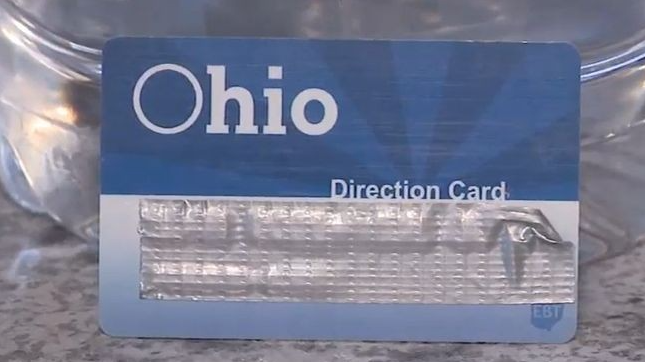A bipartisan group of Ohio legislators is taking action to combat a surge in food-stamp fraud caused by skimming—an issue that has left many families without essential benefits and cost taxpayers millions. A new bill introduced Friday aims to enhance the security of Electronic Benefit Transfer (EBT) cards, which are used by Supplemental Nutrition Assistance Program (SNAP) recipients, by incorporating embedded security chips.

Currently, Ohio’s EBT cards rely on outdated magnetic stripe technology, making them vulnerable to fraud. The proposed legislation would fund the transition to chip-enabled cards, similar to those widely used in credit and debit transactions. “We’re getting a lot of buy-in, I think, from a lot of folks that just see this as a pretty simple, straightforward solution that will stop the vast majority of fraud,” said Rep. Tristan Rader, a Democrat from Lakewood and a lead sponsor of the bill.
According to state data, SNAP beneficiaries in Ohio have lost at least $17.1 million to criminals over the past two years. The Ohio Department of Job and Family Services has warned about card skimming—an increasingly sophisticated method where thieves install small devices on store payment terminals to steal EBT card numbers and PINs. Once obtained, this information is used to drain accounts, often through rapid transactions in other states.
“It’s disgusting that money’s leaving the state,” said Rader, who previously worked on food-stamp outreach for the Greater Cleveland Food Bank. “It’s being taken from the poorest people among us, and … it only costs us a fraction of the amount of money that was stolen to actually fix the problem.”
The bill, co-sponsored by Republican Rep. Kellie Deeter of Norwalk, allocates $5.3 million for the upgrade, covering half of the estimated cost of adding security chips. The remaining funds would come from the U.S. Department of Agriculture. If passed, Ohio would have two years to complete the transition, though the measure does not include funding for contactless payment technology.
Ohio is among a handful of states considering such a transition, as the federal government has yet to mandate a nationwide shift. The bill, titled the Enhanced Cybersecurity for SNAP Act of 2025, has already garnered support from 25 co-sponsors. Rader and Deeter are working to include it as an amendment to Ohio’s biennial budget, which must be finalized by the General Assembly before the end of June.
“We know that addressing fraud… is something that is bipartisan,” Rader emphasized. In addition to this initiative, he is preparing a separate bill to provide state reimbursement for victims of EBT theft. The proposed legislation, called the No Hungry Families Act, seeks to allocate $17 million over two fiscal years to compensate those affected—filling the gap left by the expiration of a federal reimbursement program.
Between mid-2023 and December 2024, the federal government reimbursed SNAP theft victims, spending over $220 million nationwide. However, Congress allowed the program to lapse, and an extension was not included in a recent stopgap spending bill that prevented a government shutdown. Ohio lawmakers are now urging federal officials to reinstate the program. A bipartisan group of state senators has introduced a resolution advocating for its return, with a similar effort underway in the Ohio House.
If federal reimbursement is not reinstated, Rader believes the state should step in. His proposed state reimbursement plan has attracted backing from more than a dozen Democratic lawmakers, though it has yet to gain Republican support.
Reflecting on the urgency of the situation, Rader highlighted the evolving nature of fraud: “This type of fraud… how it has spiked and ramped up, with this boom in computing power and these scammers becoming more sophisticated with these newer technologies— it has become orders of magnitude beyond what we were used to in the past. Part of the problem is we just haven’t kept up with increasing our security and technology. …And right now, some of the poorest folks in Ohio are being hurt because of it.”